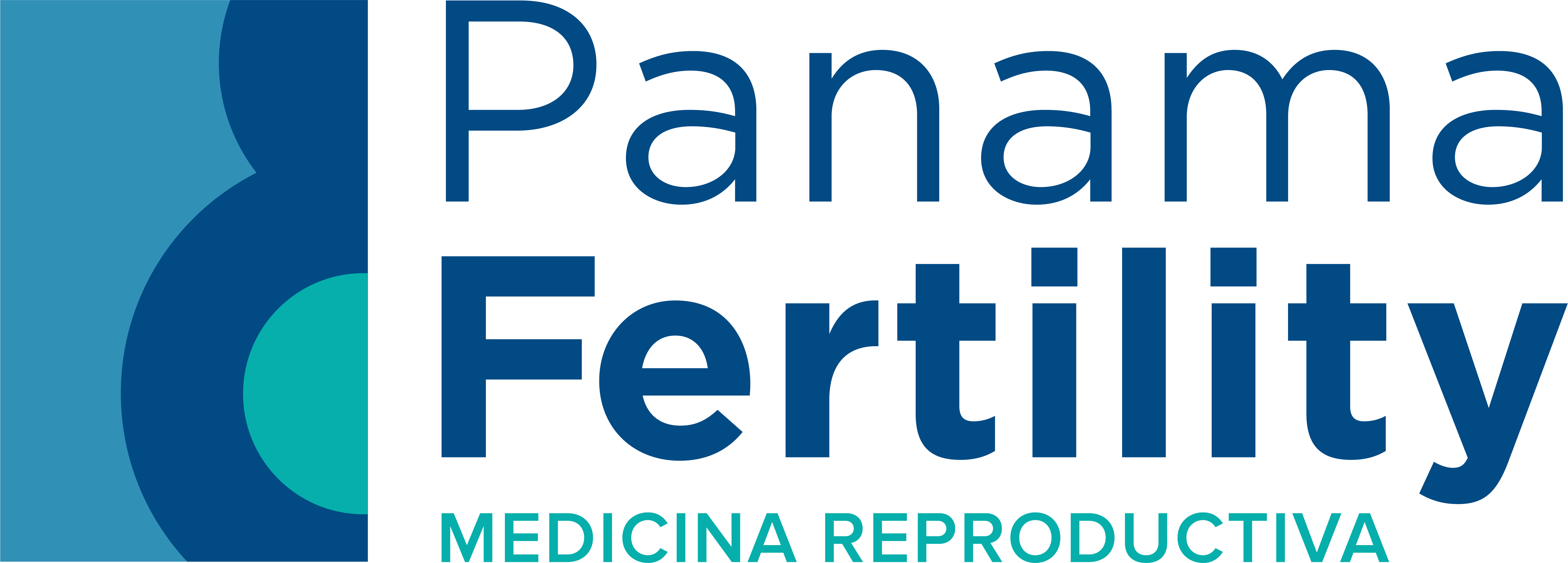Shining light into the darkness - part two
As we continue to support Mental Health Awareness Month, led by Mental Health America we are pleased to be involved in the conversation about your wellbeing, both mentally and physically. In last week’s blog we talked about mental health and how the COVID-19 pandemic has impacted all of us, especially infertility patients.
This year, the theme is Tools2Thrive, a toolkit of coping strategies and information. The team at Panama Fertility are here to help you cope with all aspects of infertility including your mental health.
Today, we are exploring the specifics of certain reproductive conditions that actually affect your state of mind. We will also look at how your mental health can impact your fertility journey. Finally, we look at how some infertility situations can also leave you scarred.
What we want you to know is you are not alone. One in eight couples face infertility and all of them experience feelings of isolation, anxiety and sometimes depression. Our team, with over 30 years infertility experience has the medical expertise to treat your reproductive conditions and have a counsellor on staff to help with the negative emotions you may be experiencing.
This year, the theme is Tools2Thrive, a toolkit of coping strategies and information. The team at Panama Fertility are here to help you cope with all aspects of infertility including your mental health.
Today, we are exploring the specifics of certain reproductive conditions that actually affect your state of mind. We will also look at how your mental health can impact your fertility journey. Finally, we look at how some infertility situations can also leave you scarred.
What we want you to know is you are not alone. One in eight couples face infertility and all of them experience feelings of isolation, anxiety and sometimes depression. Our team, with over 30 years infertility experience has the medical expertise to treat your reproductive conditions and have a counsellor on staff to help with the negative emotions you may be experiencing.
Infertility
The term infertility is given to any couple who have tried to conceive for over 12 months if the female partner is under 35. If the female partner is over 35, then an infertility diagnosis is given after 6 months. When you start to suspect there is a problem, the first emotion is worry. Is it me? Is it my partner? Then you feel guilt. Guilt that it might be your fault, guilt for thinking it’s your partner’s fault. All of these feelings are NORMAL!
Infertility is depressing. You had a life plan; you started out with great excitement and now look where we are! Friends and family seem to be announcing pregnancies, why isn’t it your turn? This at first is frustrating, but over time the feelings of anger creep in. Some women avoid the supermarket, it is just too much to bear to see stressed out Moms and screaming babies.
Hope and disappointment go hand in hand with an infertility journey. Nothing prepares you for the overwhelming emotions that you feel. It is important to realise that this entire experience is stressful and that stress needs to be managed. This is where counselling can be a really useful tool in coping and helps you to develop a strategy to cope.
Depending on the reasons for your infertility, some reproductive conditions compound these negative emotions. Let’s take a more in depth look at certain conditions.
Infertility is depressing. You had a life plan; you started out with great excitement and now look where we are! Friends and family seem to be announcing pregnancies, why isn’t it your turn? This at first is frustrating, but over time the feelings of anger creep in. Some women avoid the supermarket, it is just too much to bear to see stressed out Moms and screaming babies.
Hope and disappointment go hand in hand with an infertility journey. Nothing prepares you for the overwhelming emotions that you feel. It is important to realise that this entire experience is stressful and that stress needs to be managed. This is where counselling can be a really useful tool in coping and helps you to develop a strategy to cope.
Depending on the reasons for your infertility, some reproductive conditions compound these negative emotions. Let’s take a more in depth look at certain conditions.
Hormonal Imbalance
If you have a thyroid disorder, Addison’s Disease or a dysfunction in your pituitary gland then you have to cope with both the physical condition and the mental aspects. A thyroid condition can cause depression. Adrenal disorders trigger anxiety, agitation and the inability to focus. When your hormones are out of balance so is the rest of your body and mind.
Dr. Mario Vega Croker, Scientific Director at Panama Fertility completed his Obstetrics and Gynecology training in the USA. He then successfully obtained one of the 40 spots as a fellow in the highly competitive Reproductive Endocrinology and Infertility fellowship, also in the USA. Endocrinologists specialise in treating diabetes, thyroid diseases, infertility, growth issues, metabolic disorders and disorders in the hormone producing adrenal glands and pituitary glands.
Dr. Mario Vega Croker, Scientific Director at Panama Fertility completed his Obstetrics and Gynecology training in the USA. He then successfully obtained one of the 40 spots as a fellow in the highly competitive Reproductive Endocrinology and Infertility fellowship, also in the USA. Endocrinologists specialise in treating diabetes, thyroid diseases, infertility, growth issues, metabolic disorders and disorders in the hormone producing adrenal glands and pituitary glands.
“In patients with a thyroid disorder we will often find that a lack of T3 and T4 hormones reaching the brain, this can lead to depression, anxiety or other mental health conditions. When a couple reach out to us, their first consultation is with one of our medical doctors to take a full medical history. It is really important that we get a complete picture so that we treat each patient individually both mentally and physically.”
Dr. Mario Vega Croker, Scientific Director, Panama Fertility.
Stress itself produces the hormone cortisol. Excessive stress means the body loses control of producing and using cortisol. This in turn can lead to depression, anxiety and apathy. Knowing that infertility is stressful further compounds the problem. Therefore, managing stress and finding coping mechanisms is key to protecting your mental health. Excessive stress will also affect your sleep, nutrition, your sex life and your overall wellbeing.
Hormonal issues can also cause inflammation throughout your body, including your brain. Interestingly patients with depression are often suffering from inflammation in their brain.
It is therefore important to have a regular hormone test to highlight any issues before they start to impact your mental health. When consulting your healthcare professional make sure you tell them about all of your symptoms both physical and mental.
Hormonal issues can also cause inflammation throughout your body, including your brain. Interestingly patients with depression are often suffering from inflammation in their brain.
It is therefore important to have a regular hormone test to highlight any issues before they start to impact your mental health. When consulting your healthcare professional make sure you tell them about all of your symptoms both physical and mental.
Polycystic Ovary Syndrome (PCOS)
A little-known fact is that PCOS sufferers are 3 times more like to experience depression and anxiety than non-sufferers.
PCOS has the physical symptoms of excessive hair growth, acne, weight gain and irregular ovulation. This can lead to women feeling that they are no longer in control of their bodies, add the pressure of trying to conceive and the feeling of hopelessness can turn to depression.
There have been many studies into PCOS and mental health, the relationship between the two conditions is clear. However, the specific causes are less clear. The important take way is that PCOS is a condition that needs medical management. It is helpful if you jot down your symptoms and share them with your healthcare specialist.
PCOS has the physical symptoms of excessive hair growth, acne, weight gain and irregular ovulation. This can lead to women feeling that they are no longer in control of their bodies, add the pressure of trying to conceive and the feeling of hopelessness can turn to depression.
There have been many studies into PCOS and mental health, the relationship between the two conditions is clear. However, the specific causes are less clear. The important take way is that PCOS is a condition that needs medical management. It is helpful if you jot down your symptoms and share them with your healthcare specialist.
Endometriosis
Endometriosis is an extremely painful and debilitating condition. Patients suffer chronic pelvic pain and it accounts for 50% of female infertility cases. It affects 10% of women of reproductive age. The condition can lead to a poor quality of life and is associated with depression, anxiety, anger and introversion.
Again, it is really important that this condition is medically managed to alleviate symptoms and manage the chronic pelvic pain. By managing the condition, quality of life can be improved and in turn helps to manage the psychological effects.
Again, it is really important that this condition is medically managed to alleviate symptoms and manage the chronic pelvic pain. By managing the condition, quality of life can be improved and in turn helps to manage the psychological effects.
Failed IVF
This is one of the hardest aspects of infertility treatment to cope with. You have tried every other route and think this HAS to work. You go through every emotion to get to this point, will I have enough eggs? Will the eggs be good quality? You overcome every hurdle with an equal amount of hope and fear. The best quality of embryo is selected, you convince yourself that this is now implanted and a positive pregnancy test will follow.
But when that doesn’t happen you are totally crushed. We as a team are wounded too. We invest emotionally in your journey. But assisted reproduction technology is a science. A failed cycle is a diagnostic tool to help us to tweak your treatment plan so that next time we get it right.
It is really important that you understand that IVF doesn’t work every time. It is important that you mentally prepare yourself for this disappointment. Again, sessions with our counsellor will help you to cope in this situation and try to keep a positive attitude.
But when that doesn’t happen you are totally crushed. We as a team are wounded too. We invest emotionally in your journey. But assisted reproduction technology is a science. A failed cycle is a diagnostic tool to help us to tweak your treatment plan so that next time we get it right.
It is really important that you understand that IVF doesn’t work every time. It is important that you mentally prepare yourself for this disappointment. Again, sessions with our counsellor will help you to cope in this situation and try to keep a positive attitude.
Miscarriage
Miscarriage can happen for a number of reasons. It is your body’s natural way of rejecting an embryo if something isn’t right. Miscarriage is a deep personal loss. You have lost your much anticipated and already loved baby. There is a grieving process to go through and it is important that you get the right support to cope with such a huge loss.
If you have suffered more than one miscarriage then that needs investigation. Our fertility specialists will look at both male and female partners to investigate recurrent miscarriage. There is no doubt that miscarriage is a traumatic experience and will have an impact on your mental health. Seek counselling and don’t feel ashamed to grieve your loss.
If you have suffered more than one miscarriage then that needs investigation. Our fertility specialists will look at both male and female partners to investigate recurrent miscarriage. There is no doubt that miscarriage is a traumatic experience and will have an impact on your mental health. Seek counselling and don’t feel ashamed to grieve your loss.
Post-Traumatic Stress Disorder (PTSD)
Up until recently PTSD wasn’t recognised as a condition that could affect infertility patients. But studies have since shown that PTSD is 6 times higher among infertility patients than the general population! It’s not that surprising really when you think of everything that an infertility patient goes through. There are all the conditions above that cause infertility and mental health disorders, then add a traumatic event like a failed IVF cycle or a miscarriage. It is reported that 25% of miscarriage sufferers alone meet the criteria for PTSD.
Infertility affects your mental health. But does your mental
health affect your fertility?
In a simple answer – yes! We know that stress has a negative impact on fertility. Therefore, it is really important that you are in your best possible health mentally and physically in order to conceive. That is why we have developed the PanaMama Relaxation Program.
As part of your treatment in Panama we take away as much stress as possible. We can arrange your flights, accommodation and all the non-medical aspects of your trip through our dedicated concierge. If you decide to use our PanaMama Relaxation Program then you will benefit from sessions with our counsellor, sessions with our nutrionist before you travel to Panama, acupuncture and massage. Alleviating stress will have a positive impact on your treatment. Treating you medically and holistically is all part of our dedication to end your infertility journey.
As part of your treatment in Panama we take away as much stress as possible. We can arrange your flights, accommodation and all the non-medical aspects of your trip through our dedicated concierge. If you decide to use our PanaMama Relaxation Program then you will benefit from sessions with our counsellor, sessions with our nutrionist before you travel to Panama, acupuncture and massage. Alleviating stress will have a positive impact on your treatment. Treating you medically and holistically is all part of our dedication to end your infertility journey.

Counselling
Given all the information above, we hope that you see the benefits of counselling to deal with all the mental health aspects of infertility. If you are struggling with your mental health then please seek help as soon as you realise a problem. Speak to your general physician and please do speak to us to get you specialised help for your reproductive condition and it’s mental health implications.
Tips to improve your mental health
• When things are getting you down, get outside, blow away the cobwebs
• A walk in the park will calm your mind being at one with nature
• Jot down your feelings, worries and anxieties
• Take up art, it doesn’t matter whether you are good at it, it’s about losing yourself in the project
• Take regular breaks throughout the day to breathe Focus on breathing exercises Take up singing, belt out your frustrations
• Get enough sleep Avoid alcohol as it is a depressant
• Adopt a healthy eating plan A moderate exercise plan will also improve your mood.
• A walk in the park will calm your mind being at one with nature
• Jot down your feelings, worries and anxieties
• Take up art, it doesn’t matter whether you are good at it, it’s about losing yourself in the project
• Take regular breaks throughout the day to breathe Focus on breathing exercises Take up singing, belt out your frustrations
• Get enough sleep Avoid alcohol as it is a depressant
• Adopt a healthy eating plan A moderate exercise plan will also improve your mood.





